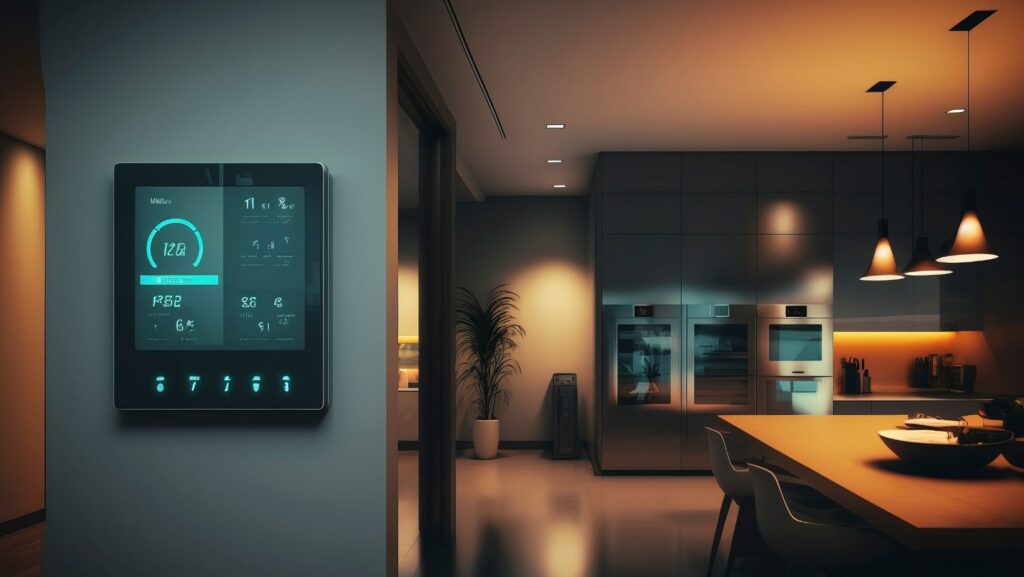Lighting influences your daily habits, your energy levels, and your overall sense of balance. Subtle changes in brightness or color temperature can make a noticeable difference in how your body and mind respond throughout the day. Harsh, unchanging light can leave you tense and fatigued, while well-timed, supportive lighting helps you feel more at ease, more focused, and more in tune with your environment.
That’s where adaptive lighting comes in. It uses smart technology to adjust light automatically, supporting your wellness without adding more tasks to your plate. Whether you’re working, relaxing, or winding down for the night, it creates the conditions for you to feel your best—with less effort.
Read on to see how adaptive lighting supports healthier routines and a better quality of life.
Support Healthier Habits Through Smart Integration
Smart home technology often centers on comfort and convenience, but it can also help shape better daily routines. Lighting plays a practical role in that shift, especially when you’re using energy-saving smart lights designed to support everyday wellness.
To encourage healthier habits without extra effort, the following features can make a meaningful difference:
- Works with matter devices: Choose lights that support popular smart home platforms. This ensures a smooth experience, especially when syncing lights with other devices around your home.
- Personalized control: Use connected apps or voice assistants to adjust lighting based on your daily activities. You can automate settings for workouts, meals, or moments of rest without needing to reset them every time.
- Safe and efficient: Newer options, like advanced 4th generation bulbs, combine trusted performance with energy efficiency. These bulbs offer reliable scheduling and adjustable color temperatures that can be fine-tuned to suit your environment.
When smart lighting is set up to support your needs, it becomes easier to stay consistent with healthy choices throughout the day.
Improve Sleep Quality with Light That Works with You
Light plays a big role in how easily you fall asleep and how well you stay asleep. Smart lighting systems with features like adaptive lighting can help create an evening environment that supports deeper, more restful sleep.
To support better sleep with lighting, consider the following features:
- Warm evening light: Choose smart bulbs that shift to warmer tones in the evening. These tones are easier on your eyes and help signal your body that it’s time to wind down, which encourages melatonin production.
- Automatic scheduling: Set your lights to dim or change color based on your evening routine. Whether you’re finishing up chores or reading in bed, a preset schedule eliminates the need to adjust anything manually.
- Sleep-optimized modes: Some smart lighting systems include dedicated sleep modes that gradually lower brightness and color temperature over time. This steady transition prepares your body for rest without sudden changes.
These features let your lighting support a smoother transition to sleep, helping you feel more rested and balanced each morning.
Boost Mood and Focus Throughout the Day
Lighting has a direct impact on your mental clarity and emotional balance. Smart lighting systems that support adaptive lighting features can help improve how you feel and function from morning through evening.

The following are ways smart lighting can support better mood and sharper focus during the day:
- Cooler light in the morning: Lights programmed to deliver cooler temperatures at the start of your day can help activate your senses and promote mental sharpness. This type of light mimics daylight, which can help reduce grogginess after waking up.
- Gentle midday balance: Around midday, some lighting systems shift to softer, more neutral tones. This helps reduce the strain that can come from harsh overhead lighting or prolonged screen use—especially important for people working from home.
- Mood-friendly settings: Proper light exposure throughout the day can support emotional regulation. Instead of lighting that feels overly dim or overly bright, adaptive lighting keeps levels steady, which can help reduce irritability and support a more consistent mood.
A well-lit space makes a noticeable difference in how you think and feel throughout the day. Smart lighting helps create that environment without constant manual changes.
Reduce Eye Strain and Physical Fatigue
Lighting affects more than mood—it impacts your eyes, posture, and physical comfort. Adaptive lighting systems can ease that strain by creating an environment that adjusts automatically to your needs throughout the day.
The following are features that help reduce physical discomfort and visual fatigue:
- Real-time adjustments: Some smart lighting setups come with ambient light sensors. These sensors detect natural light levels in your space and adjust artificial lighting accordingly. This helps prevent harsh contrasts or over-bright environments that often lead to squinting or eye irritation.
- Color temperature shifts: Throughout the day, your eyes react differently to light. During reading or intense screen time, cooler tones reduce glare and keep things sharp. For casual tasks or relaxation, warmer tones ease the strain on your vision. Smart lights can switch tones automatically to match what you’re doing.
- Consistent transitions: Sudden brightness changes—like walking from a dark room into a bright space—can trigger headaches or tension. Adaptive lighting systems avoid these abrupt shifts with gradual dimming or brightening. This keeps your body relaxed and reduces muscle tightness from straining your eyes.
Smart lighting plays a simple yet meaningful role in your physical comfort. When light adapts quietly in the background, you avoid unnecessary strain and feel better throughout the day.
Final Thoughts
Adaptive lighting goes beyond simply illuminating a room—it’s a tool for optimizing your well-being in a way that fits seamlessly into your daily life. By adjusting to your natural rhythms and activities, it fosters a more comfortable and efficient environment without overwhelming your routine.
As technology continues to evolve, incorporating adaptive lighting into your space can offer long-term benefits, helping you feel more balanced, focused, and at ease.
